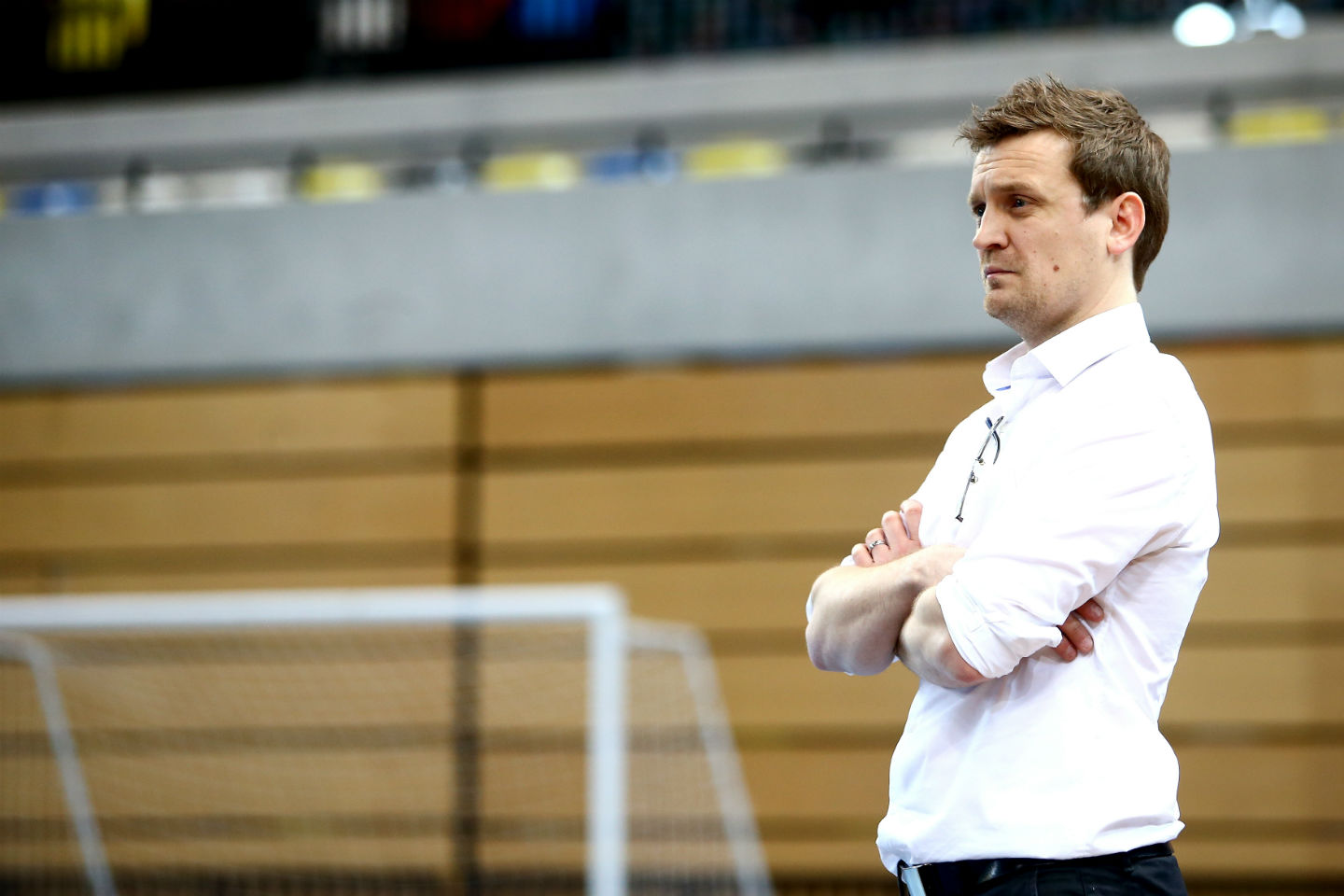
Why young players should train indoors during winter
- The Boot Room
- 30 November 2017
Mike Skubala, head coach of the England futsal team, outlines the benefits of practising futsal indoors during the winter months.
Even when temperatures reach freezing and rain is relentless, taking young players indoors to play can be perceived by some as being ‘soft’ or inauthentic to the game of football.
For Mike Skubala, FA futsal elite performance manager and head coach of the England futsal team, it is an attitude linked to culture and tradition.
“Some of the thinking in our tradition and culture has probably viewed playing football indoors as a bit ‘soft’ and that sport had to played outside. However, in other countries they would embrace playing indoors through the bad weather.”
Skubala points to England’s lack of a court culture (apart from netball) as one of the reasons coaches can be apprehensive about playing indoors.
“If you think about all the sports we are strong at – rugby, football, cricket – they’re all outdoor sports. But if you think about indoor sports such as handball, futsal and basketball they are probably not where they are in other nations. So I do think we lack a court mentality.”
Skubala believes the cold spell is a perfect opportunity for grassroots football coaches to give their young players the opportunities to play futsal. But format of activity aside, there is a belief that the environment afforded by training indoors should be embraced.
“There are obvious benefits for taking your training indoors: no rain, no wind, no freezing players, parents or coaches. Also by taking training indoors the efficiency in which people can work, coach, and learn is still fast.
“We all talk about how many contact hours we get with kids and how we want to get them playing and competing more, this is one way of achieving that. By going indoors it allows you to keep that momentum throughout the season without losing pockets of training and playing time due to games being called off.”
There is a misconception that indoor sports aren’t physical. But actually, they can be even more physical because there is less space
With the unpredictability of the elements taken care of, an indoor arena allows for an environment which is conducive to learning, explains Skubala.
“By taking your training indoors you can still plan for the season as you know your sessions and games will take place rather than having to adapt in the car at the last minute because of the weather.
“In terms of getting them into groups and getting the players to discuss ideas it can be difficult outside in the cold and rain.
“Also, how hard is it to write on a white board when it’s tipping it down with rain? So, there are all these environmental factors that make things difficult outside that you just don’t have inside.”
Skubala believes an indoor environment also offers coaches lots of opportunities to develop high levels of motivation and engagement with their players.
“Indoors can be a very fun environment. If i’m working indoors with kids I would put music on and stop the music when I want to speak. So you can use little techniques that you would use if you were teaching in a school hall. You can put things up on the wall and it won’t be blown away or rained on.
“If I want them to play, I put the music on and then when I turn it down they know to run in, so it’s linked to behaviour management strategies. You can be quite clever about how you use an indoor facility to manage the behaviour.”
However, Skubala is keen to stress that training indoors shouldn’t be seen as an easy or comfortable training environment.
“There is a misconception that indoor sports aren’t physical. But actually, they can be even more physical because there is less space. If you look at football and futsal there is lots of physical contact but it is just different types of contact. You’ve got the benefit of creating individual contacts by making spaces smaller and closer together.”


